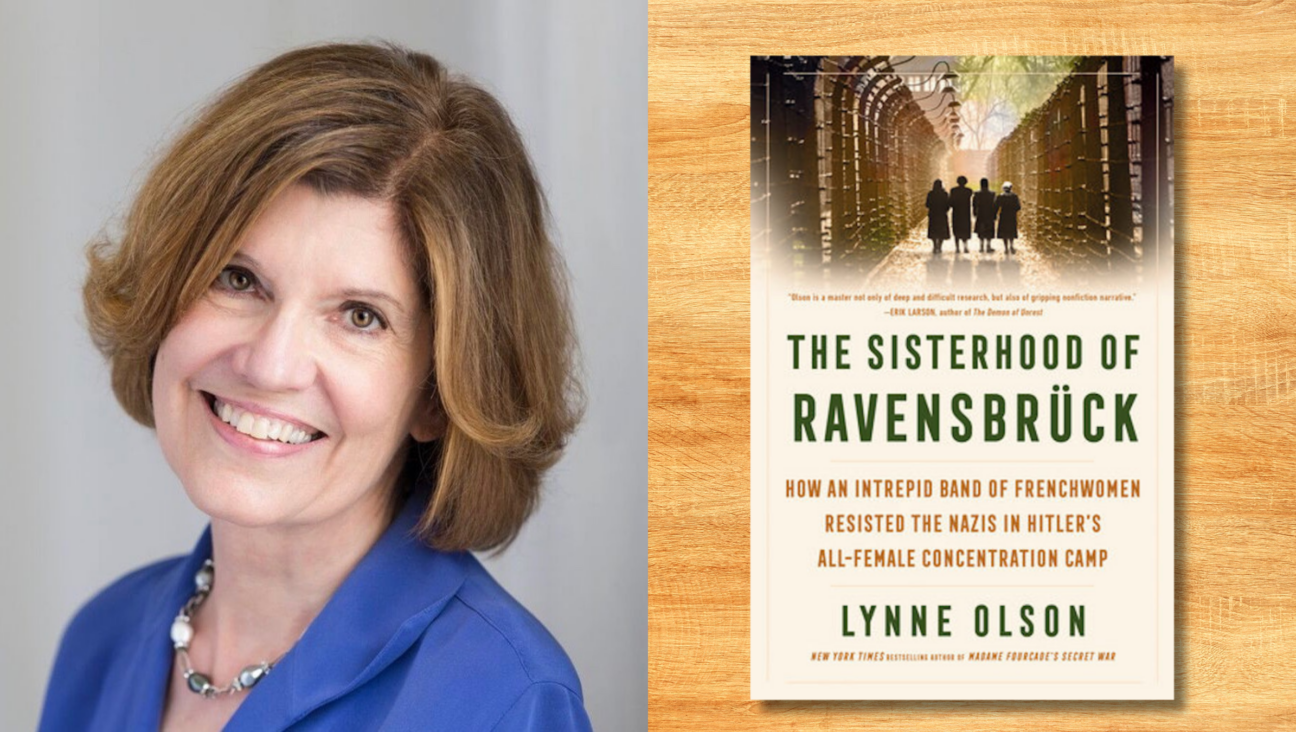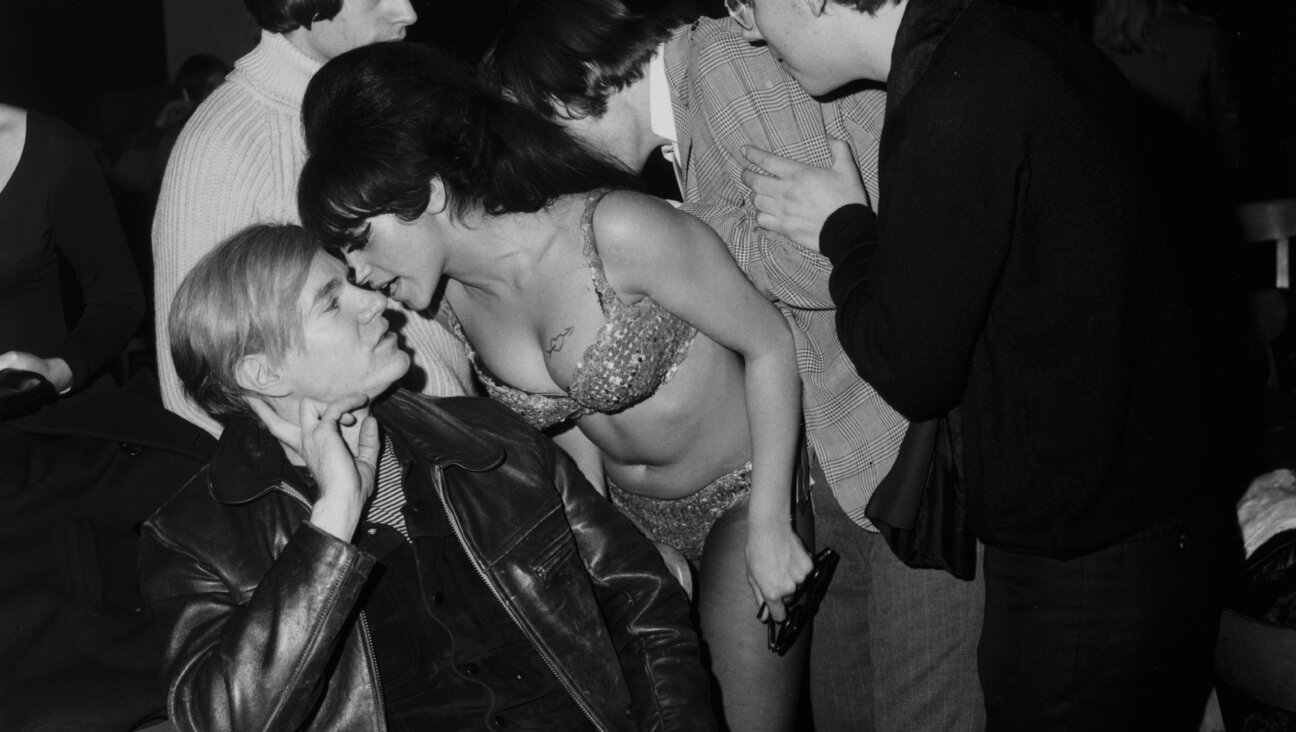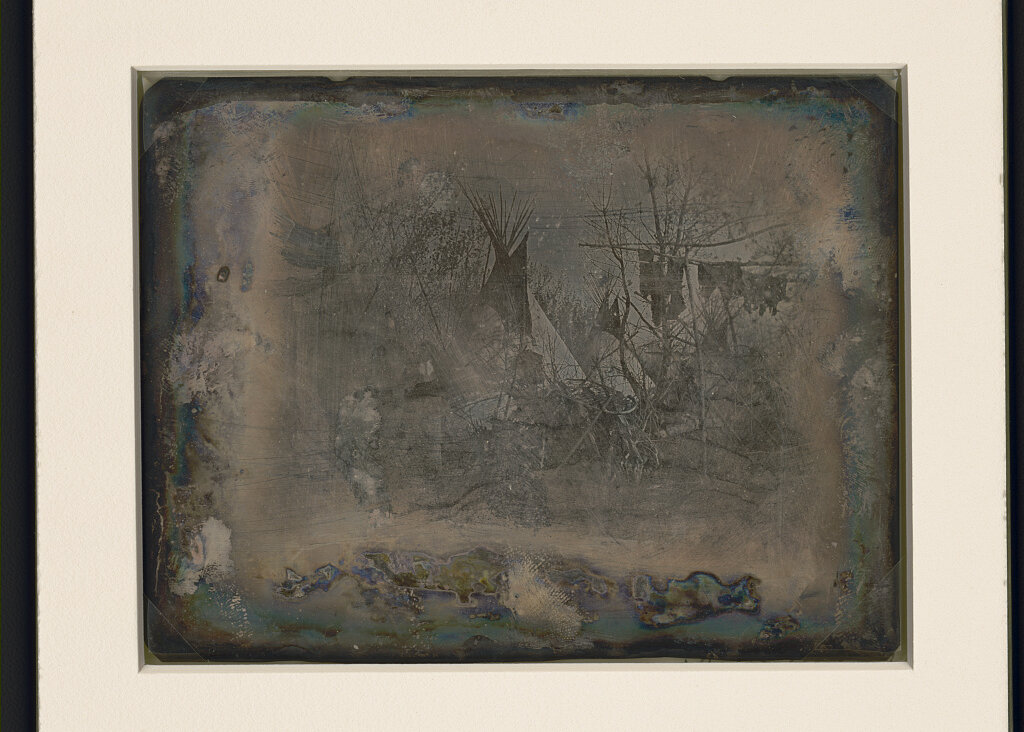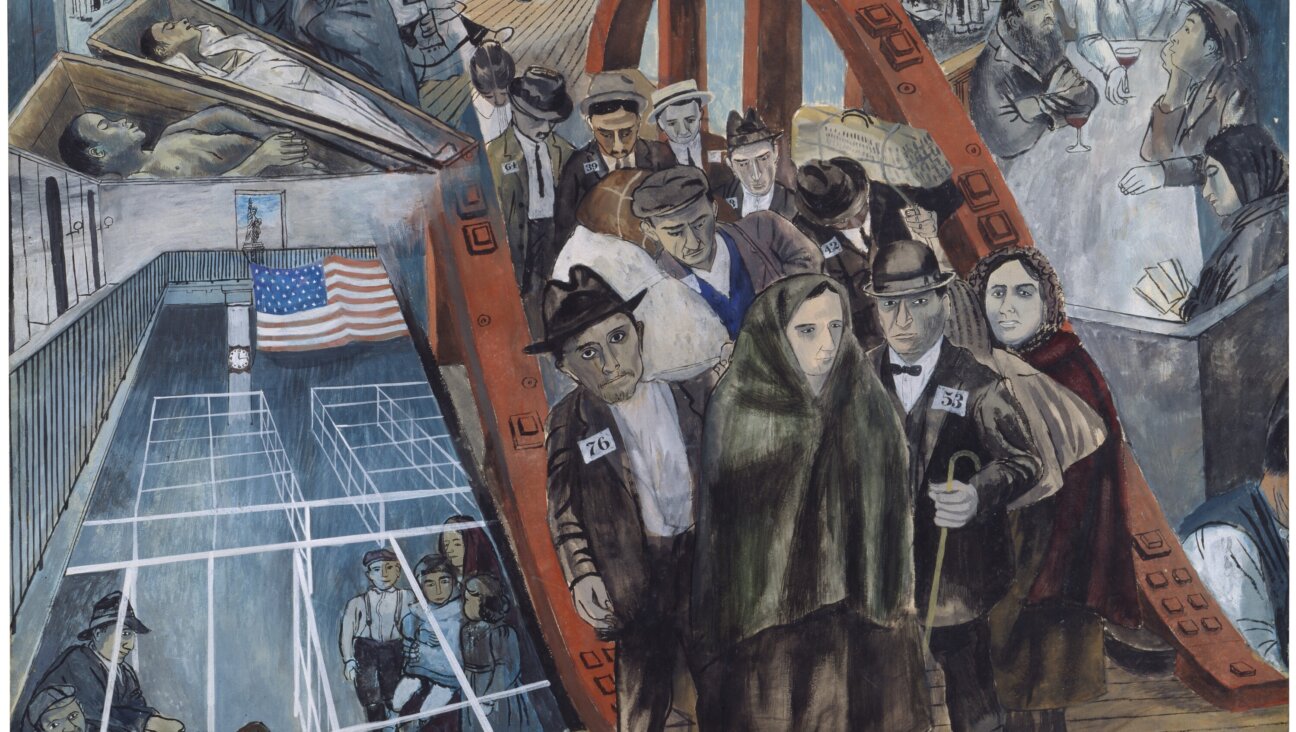David Simon on ‘The Plot Against America’ and our crisis of democracy

John Turturro as Rabbi Lionel Bengelsdorf in “The Plot Against America.” Visible is an eagle design on the America First banners that resembles the one on the backs of one dollar bills. Image by Courtesy of HBO, Photo by Michael K. Short
Anti-Semite, aviator and national hero Charles Lindbergh never ran for president — but isolationists thought of courting his candidacy more than once. The first time was in 1940, when some Republicans considered him for their ticket against incumbent Franklin Delano Roosevelt. The second time was in 1944, when Gerald L.K. Smith sought him as the nominee for his newly-inaugurated America First Party. Lindbergh had been the spokesman for the isolationist America First Committee — of no real affiliation and more overtly bigoted than its namesake — but by 1944, with America at war and the Committee extinct for over two years, he evidently lost a taste for politics.
But could he have won? And what would have happened if he did? David Simon has spent the last few years reflecting on these questions. The adapter, with Ed Burns, of Philip Roth’s 2004 novel “The Plot Against America,” Simon is known for his deep, systemic dives into the worlds of sex work, policing and his first gig: journalism. With “Plot,” he takes on something a bit closer to home — not his native Maryland, but a lively Jewish living room. In the six episode miniseries, premiering on HBO March 16, he conjures the milieu of his late father Bernard Simon — the longtime public relations director at B’Nai B’rith — and his grandparents. But the project is personal on another level, speaking to the auteur’s current crisis of confidence about our country’s future.
As he told a crowd at the show’s premiere at Florence Gould Hall on March 4, “If you have cause to remember us at any time in the future, remember us in the voting booth.” (It’s no secret which way Simon votes, but he’s concerned others might not follow his lead.)
President Trump is the all too easy metaphor for any recent dystopian vision of America. But while “The Man in the High Castle” bends time-space and “The Handmaid’s Tale” goes neo-Medieval, “The Plot Against America,” like all of Simon’s work from “The Corner” to “The Deuce,” feels plausible and grounded. In that way, its commentary on Trump’s America is chillingly trenchant.
I spoke with Simon about Roth’s accidental allegory — the subject of think pieces and even a marathon reading since November 2016 — and how the current moment, and the past, made its way to the screen. This conversation has been edited for length and clarity.
PJ GRISAR: I’ve been digging through our archives for everything I can find on Lindbergh. We go back a ways, as you know.

David Simon Image by Courtesy of HBO
DAVID SIMON: Abraham Cahan [The Forward’s founding editor].
Yes! What was your research like? There is a lot of documentary footage in the show. Newsreels, newspapers. In many ways it’s about media.
We did the due diligence, reading everything that was involved. There’s a lot of reflection in that moment in history, both political and social, cultural. To give Roth credit, I think he went to the library on it. He had some real memories I think he was able to access on his own, and he had the memories of all the family members — probably his parents.
It really was the case that Roosevelt feared Lindbergh being solicited and agreeing to take the Republican nomination. He saw Lindbergh as being very much out of the political ordinary in terms of what he would have to contend with. I think in some basic way, he looked upon Lindbergh as an existential threat — especially because he was running for a third term, and that was unprecedented.
He was in fact an admirer of fascism and he was not comfortable with Jews. All that said, he was in fact a great hero, a brave man, and charming. He had a Midwesterner’s sense of self-effacement and he had a cowlick and there was a lot to commend him as a political figure and also as a great man of history. He was complicated
I know that Roth told you not to confuse Lindbergh with Trump. But what parallels do you see between this story and today?
What Roth was saying to me if I understood him correctly — and I think I did — was ‘don’t mistake the two characters.’ One is a buffoon and a real estate magnate who doesn’t pay his bills and a failed casino operator, and the other one really was one of the greatest American heroes of this generation — perhaps the greatest standing hero at the moment that he gave himself over to isolationism and anti-Semitism. He really was a hero, and Roth found it amazing that we had been brought to this moment not by a hero, who of course would have made the most dramatic and effective demagogue, but by somebody who had none of the characteristics of a hero.
But Roth clearly acknowledged that by hook or by crook the book he had written in 2004 had become perfectly allegorical to what had worked politically in the election of 2016: The othering of vulnerable immigrant classes, the othering of Muslims, the othering of those cohorts in American society who are the least accepted and metastasizing political fear around those cohorts. That train is never late for the demagogues, and Trump played it beautifully and he’s still playing it and it has worked to great effect. Roth wrote it at the time of the fear-mongering leading up to Iraq, and he was very aware that it’s not a book about anti-Semitism and about Jews, but about this American political dynamic in which our republic is perennially vulnerable to the worst kind of demagoguery.
But I would hate to have the purpose of the piece mistaken for a re-litigation and reconsideration of Lindbergh in 1940 and America First and that kind of isolationism. The verdict’s already in on that. The verdict should be in on Hitler, on the Holocaust and World War II. That was a war we needed to be in sooner rather than later.
Another difference in the demagoguery: We first hear Lindbergh with his infamous, anti-Semitic Des Moines Speech. But when he runs for president, he moderates his tone; he has a very short, anodyne speech about staying out of the war. The ugliness is in subtext here and today it’s all being said out loud.
[The speech] would fit on Twitter. That tells you all you need to know about political messaging and simplicity by which a growing plurality of our electorate can be swayed.
Democracy is a really hard way to govern yourself. Churchill, no great liberal, noted that it was the worst form of government until you considered all the others. That’s pretty precise. It’s really hard. It’s quotidian. Every day you have to get up, you have to kill three or four more snakes. The day that you stop getting up and killing snakes is the day you start losing your civil liberties. You never get to the point where policies are utilitarian for everybody in the sense of the best possible outcomes. You’re always fighting. You’re always trying to rescue your institutions from mass capital, from disinformation from apathy. That’s democracy, and it’s never going to get any better. The question right now in my mind — the sort of sinister question — is whether or not we’re up to it anymore. Is our electorate educated enough, or are our information systems so corrupted that we live in a post-truth moment? I have real questions about whether or not the fuel you need to sustain a republic — which is accurate information and an educated electorate — are still available to us in proper numbers. It’s scary.
Lindbergh’s triumph in the book feels like something very simple, and something emotional and something rooted in fear and an awareness of the other. Most Americans in 1940 were in fact isolationists and you could not explain fascism or what was happening in Europe or the vulnerabilities of a western-style democracy to people in a simple enough way to counter a message of “Do you want to be in a war, or do you not want to be in a war?”
Right. He drops the dog whistles in a way Trump still hasn’t.
The same fears that are being metastasized by Trump are the ones in the book — in terms of the immigrant and whatever the immigrant class is. “They’re not going to be good additions. Their loyalty is suspect, they don’t worship the same god in the same way. Their politics are suspect.” These were the things said about Jews: “Look how many of them are involved in communism. Look how many of them are socialists. They have their own secret ways of being, they answer to things other than their Americanism.” It’s the same things delivered to Muslim legislators nowadays or to Mexicans or Latinos at the Southern border who are basically trying to get to a better life and being treated as if they’re all rapists and gangsters.
It feels like Roth couldn’t have imagined then where we are now. The Lindbergh programs targeting Jews are a kind of genteel bigotry. It’s not on the level of kids in cages.
No one ever thinks it’s going to reach towards you. You think you can always concede the other guy’s civil liberties and preserve your own. Of course, that’s a recipe for losing it altogether
My father never let a Passover go by without delivering the line about “Freedom can never be entirely won, but it can be lost.” That really is a democratic dynamic. If you’re not up for a quotidian fight for what the republic means, then you lose the republic. I think it’s a lot more fragile than we think. I didn’t think so for awhile. There were times when I thought we were on a better path, but I’m really astonished by the levels of fear and hate that have been delivered to the country in the last three years.
There’s a sequence toward the end that involves violent riots and a tepid response from the president. It feels very akin to Charlottesville.
We obviously wrote the entire sequence with Charlottesville in mind and with the presidential response in mind — the dry response. It’s written with Charlottesville plainly in front of us.
This is your most Jewish project. How do you feel exploring this territory? You’ve been the subject of some anti-Semitism online for it I know.
It’s certainly easier for me to access the vernacular of my household of origin — and in this case of my grandparents’. There has been some fun. There are some lines of dialogue that are straight out of my living room that I’m happy to see in there that I know my family will smile at. There are some pictures on the wall of the Levin house and on the wall of Mrs. Finkel’s house — the mother’s house — that are photographs of my family and also some of Winona Ryder’s family from the 1930s and ‘40s and earlier.
You know, we filmed in Jersey City, I think, for the commercial strip in Weequahic. We filmed on what used to be Jackson Avenue two or three blocks from where my father’s parents’ store was. They had a grocery and they lived around the corner on Stegman. I walked down there and I went to my dad’s old store. It’s a Boost Mobile store now.
I can tell you one of his early memories as a child — he recounted it several times for me. His father took him on an excursion on the tube train from Journal Square to Lower Manhattan. He remembers being put up on his father’s shoulders to see Lindbergh come down Broadway with the ticker tape parade. My father would have been seven. 12 or 13 years later he’s a 19-year-old, 20-year-old college student at NYU and Lindbergh’s the devil. Roth was 10 years younger than my father. He wouldn’t have remembered the flight, but Lindbergh’s stature — people were still doing the Lindy hop. He would have remembered this extraordinary hero suddenly becoming anathema if you were a Jewish American. That is embedded in the book.
But that’s all just clothing the characters really — they happen to be Jewish
I see a pretty Jewish parallel to today in Rabbi Bengelsdorf (John Turturro), Lindbergh’s Jew in the White House. He resonates with some of some of Trump’s staff, where Trump has some plausible deniability.
[Stephen] Miller, [Sheldon] Adelson. I can’t help but think — and of course it is my politics, but it’s also my sense as a Jew — I can’t help but be deeply ashamed for anybody who would target and utilize as political fodder any immigrant anywhere — as a descendant of families that always had to have one bag packed and one eye on the Cossacks. I can name the 11 members of both my families who didn’t get out of Europe — at least 11, that I know of. And they couldn’t get out of Europe because the world didn’t want them, because they were held suspect because of their politics, or because there were too many of them or they made people uncomfortable and they might not be American enough, so there were quotas and they couldn’t get in and they couldn’t get out.
I have photographs of these people who were shot in the woods outside Slonim or went to Auschwitz and all I can think of is “How can you engage in a politics that so diminishes these people who are trying to get to a better life now and still call yourself a Jew? How can you do it?” If there’s ever a singular place where our allegiance has to be, it’s gotta be on the stranger in a strange land.
Correction March 15, 2020, 12:50 PM: Due to a transcription error, a previous version of this article misquoted David Simon as saying his family members were shot “outside a slum.” He said they were killed outside “Slonim,” a Belurasian city where the Nazis established a ghetto. We regret the error.
PJ Grisar is the Forward’s culture fellow. He can be reached at [email protected].






















